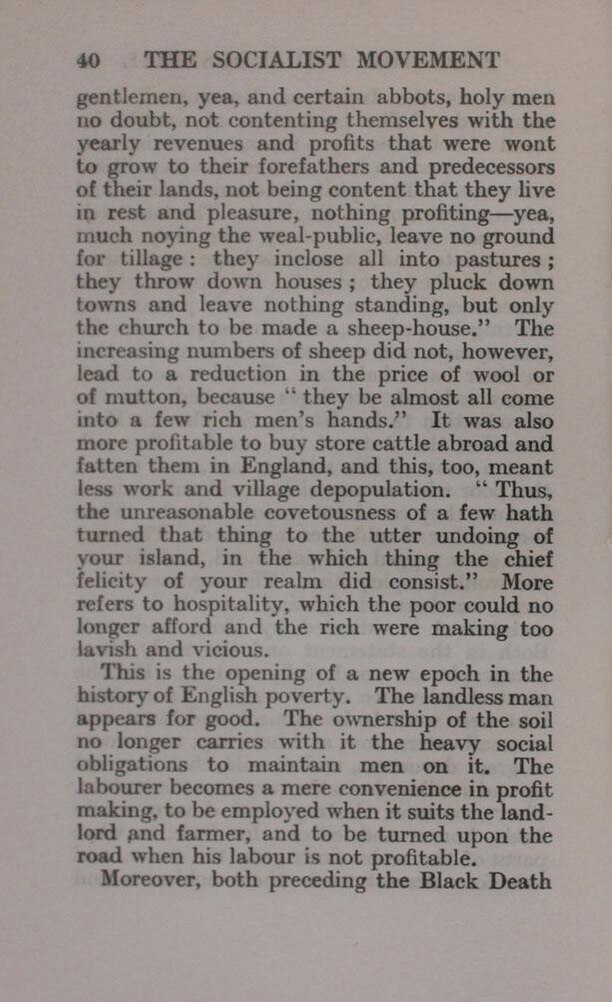gentlemen, yea, and certain abbots, holy men no doubt, not contenting themselves with the yearly revenues and profits that were wont to grow to their forefathers and predecessors of their lands, not being content that they live in rest and pleasure, nothing profiting—yea, much noying the weal-public, leave no ground for tillage: they inclose all into pastures; they throw down houses; they pluck down towns and leave nothing standing, but only the church to be made a sheep-house." The increasing numbers of sheep did not, however, lead to a reduction in the price of wool or of mutton, because ‘"they be almost all come into a few rich men's hands." It was also more profitable to buy store cattle abroad and fatten them in England, and this, too, meant less work and village depopulation. "Thus, the unreasonable covetousness of a few hath turned that thing to the utter undoing of your island, in the which thing the chief felicity of your realm did consist." More refers to hospitality, which the poor could no longer afford and the rich were making too lavish and vicious.
This is the opening of a new epoch in the history of English poverty. The landless man appears for good. The ownership of the soil no longer carries with it the heavy social obligations to maintain men on it. The labourer becomes a mere convenience in profit making, to be employed when it suits the landlord and farmer, and to be turned upon the road when his labour is not profitable.
Moreover, both preceding the Black Death
